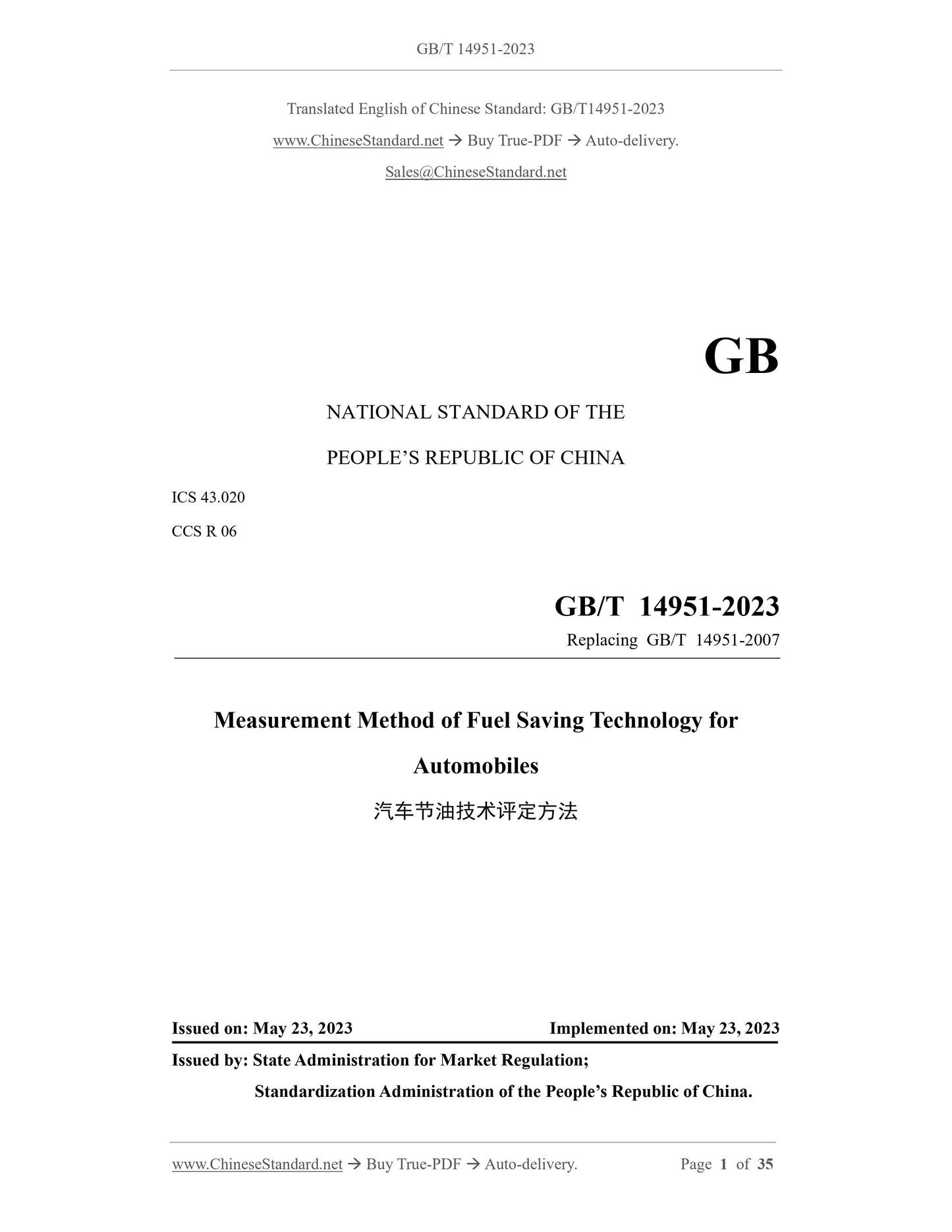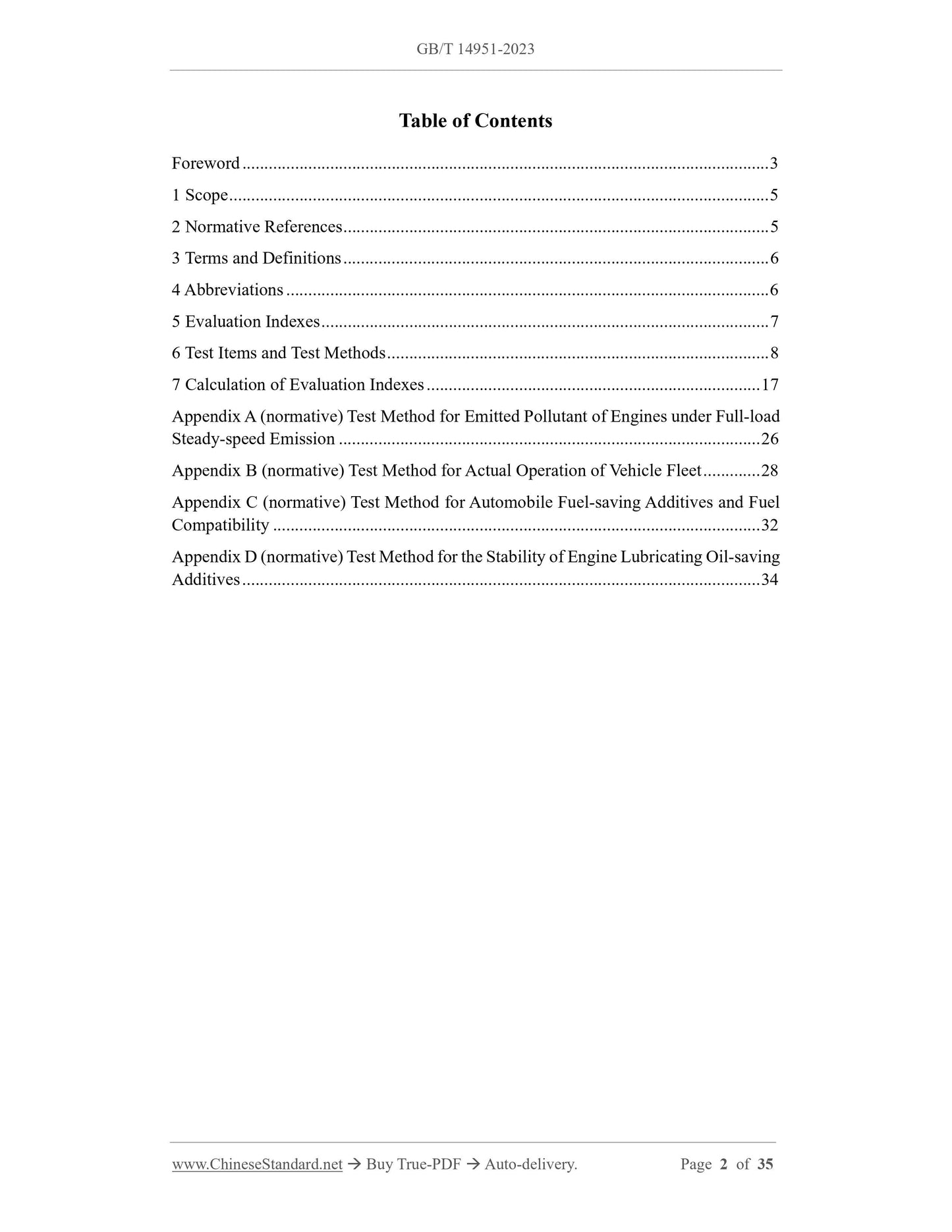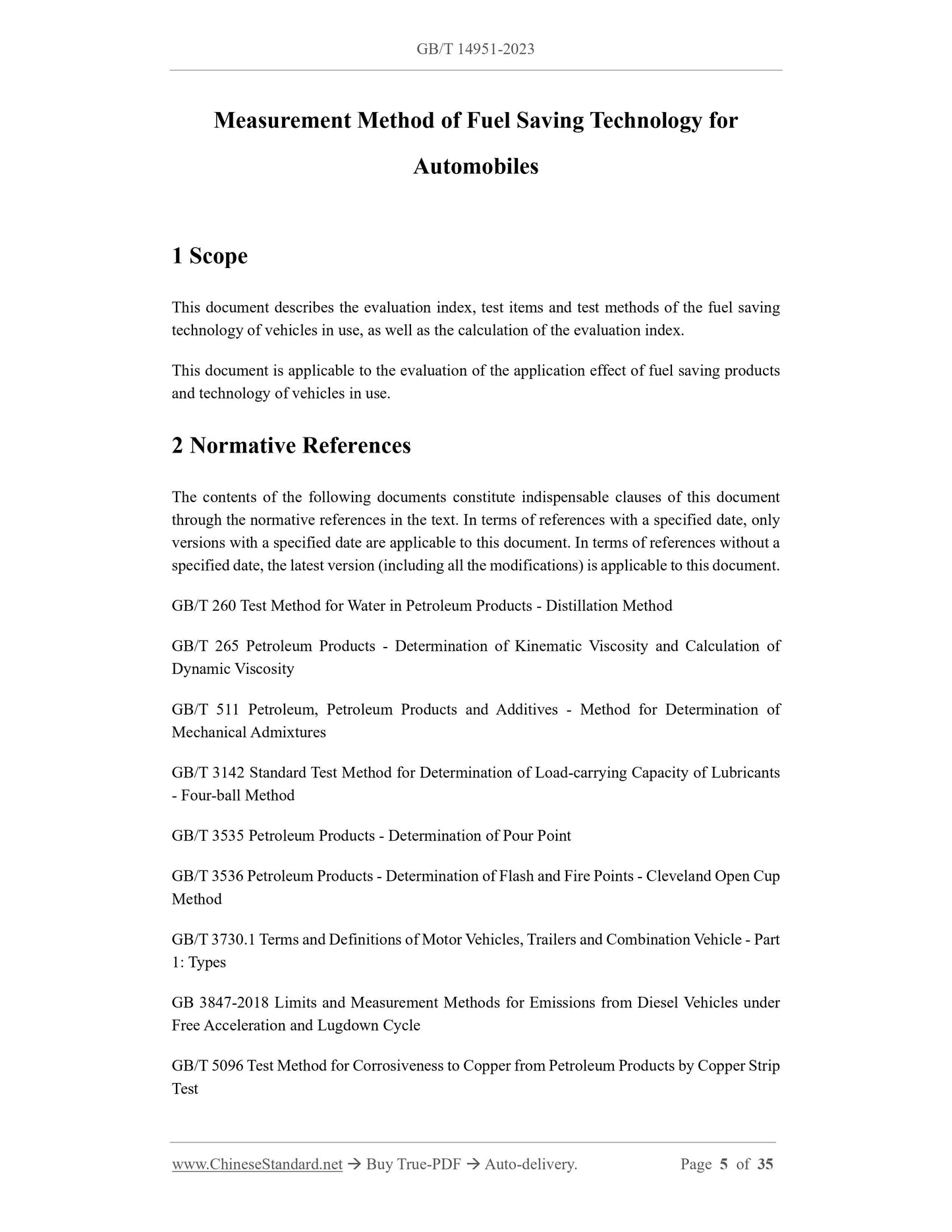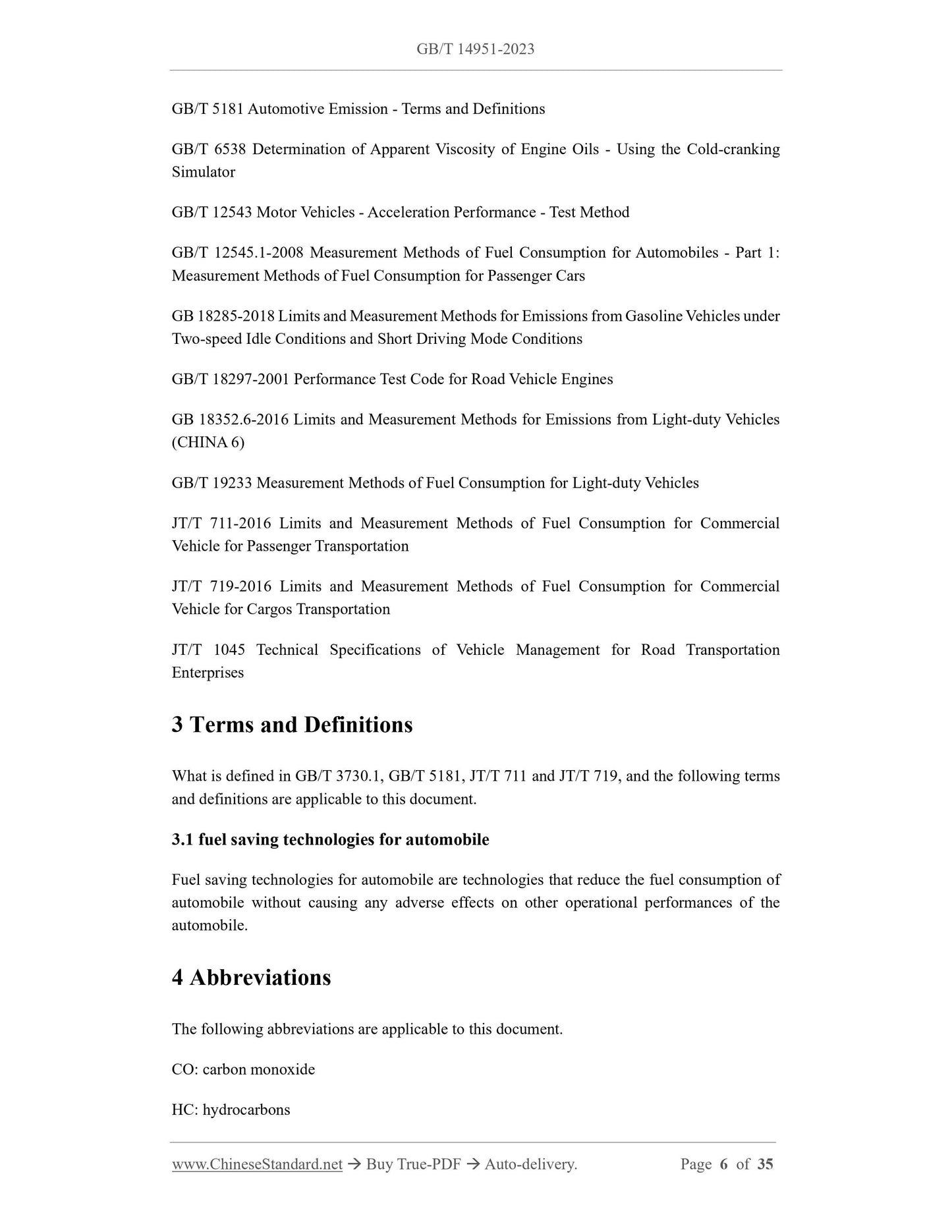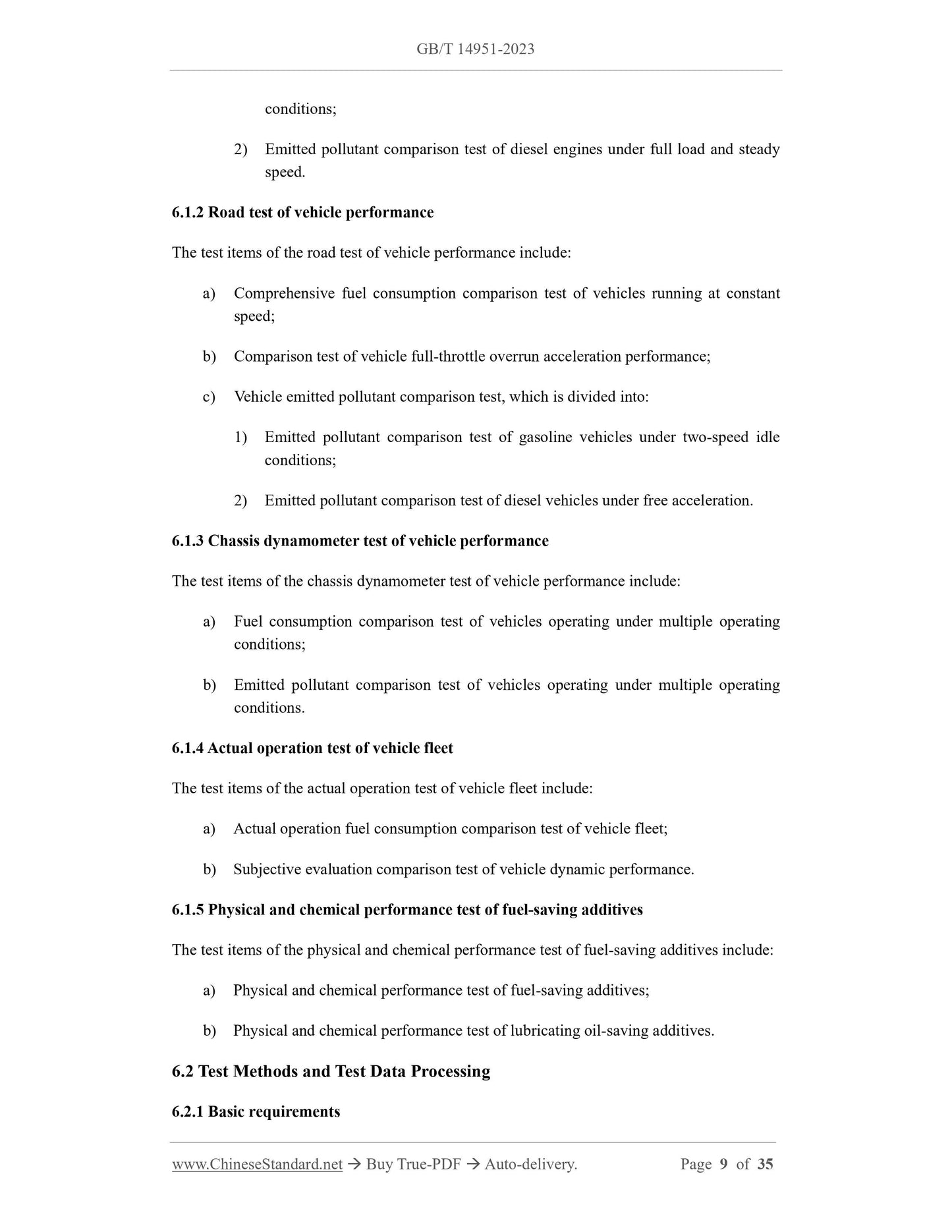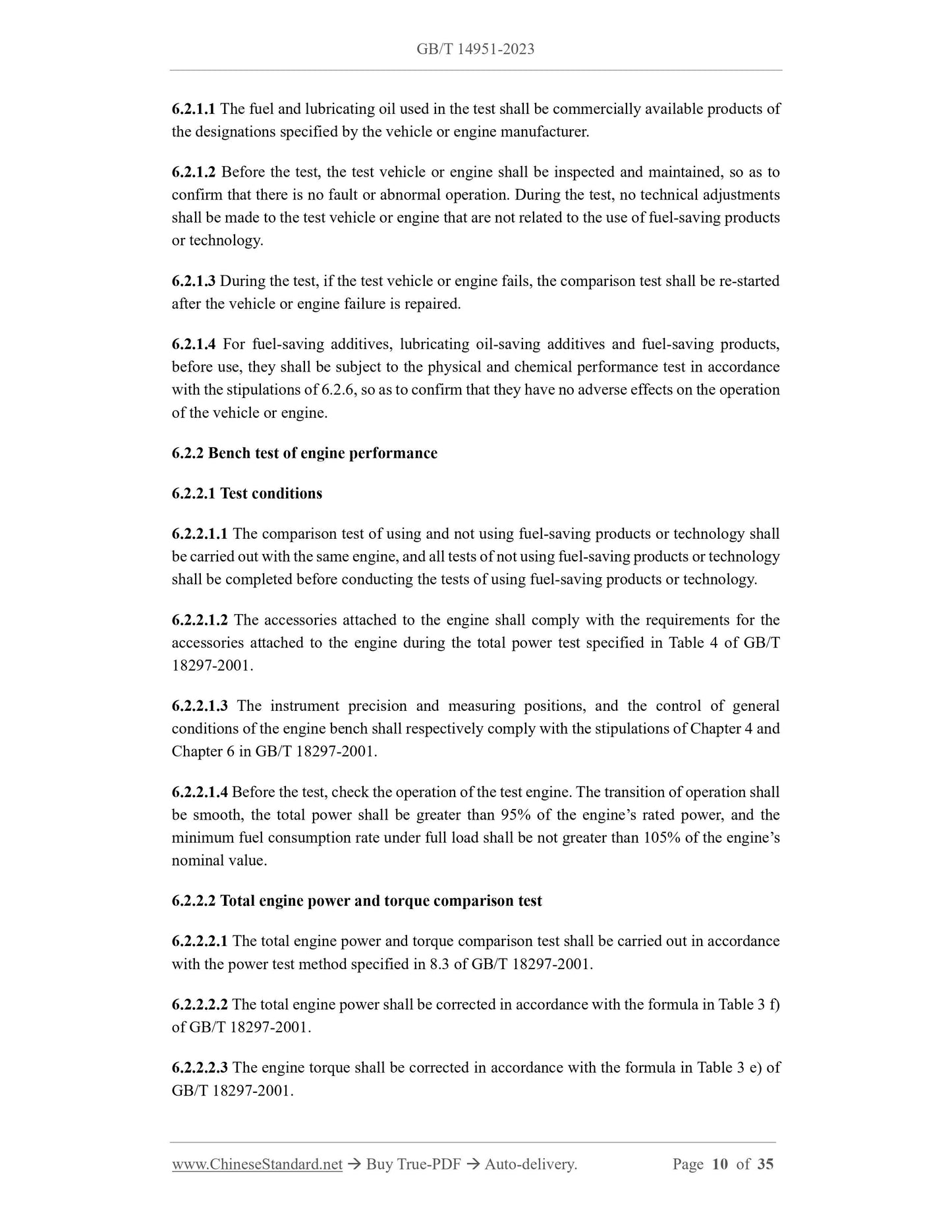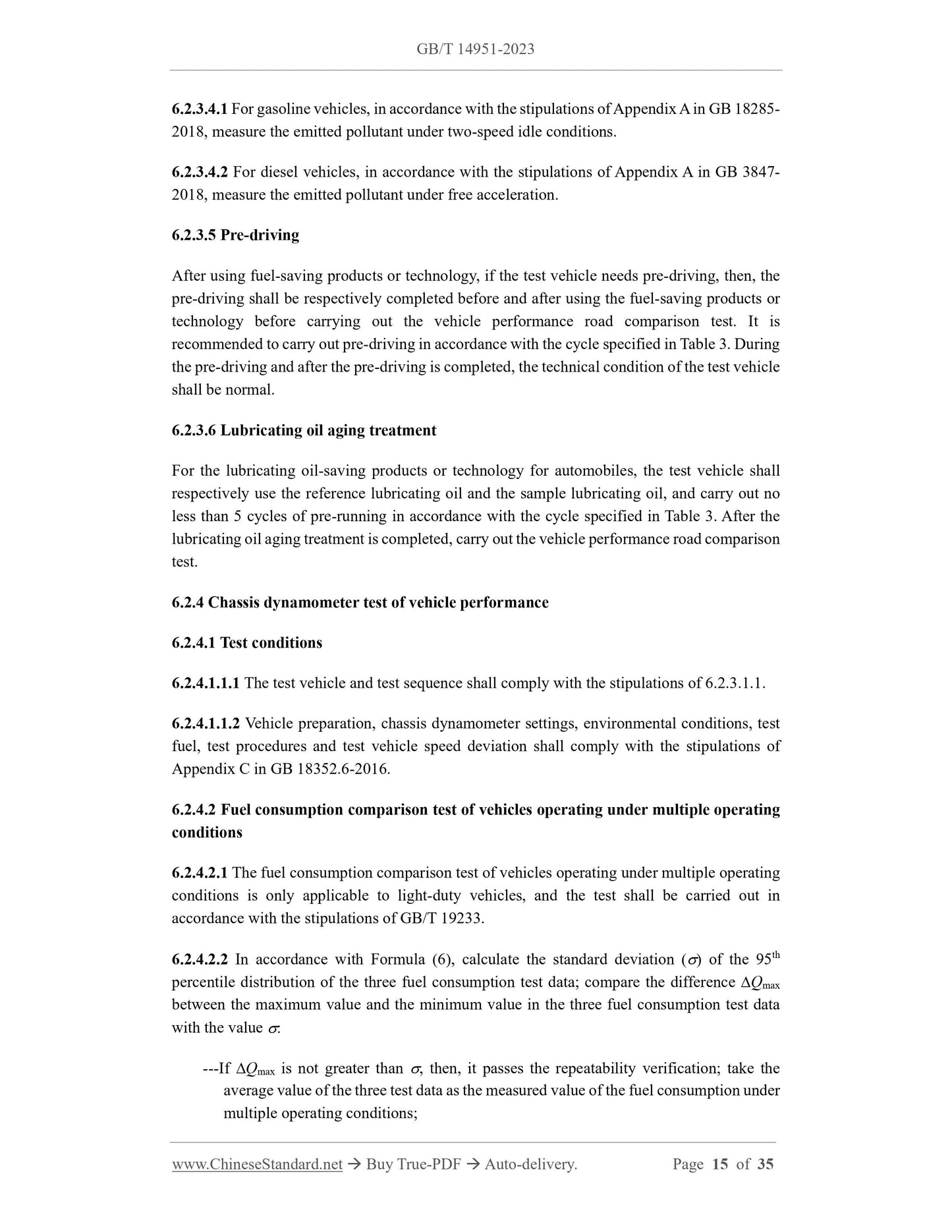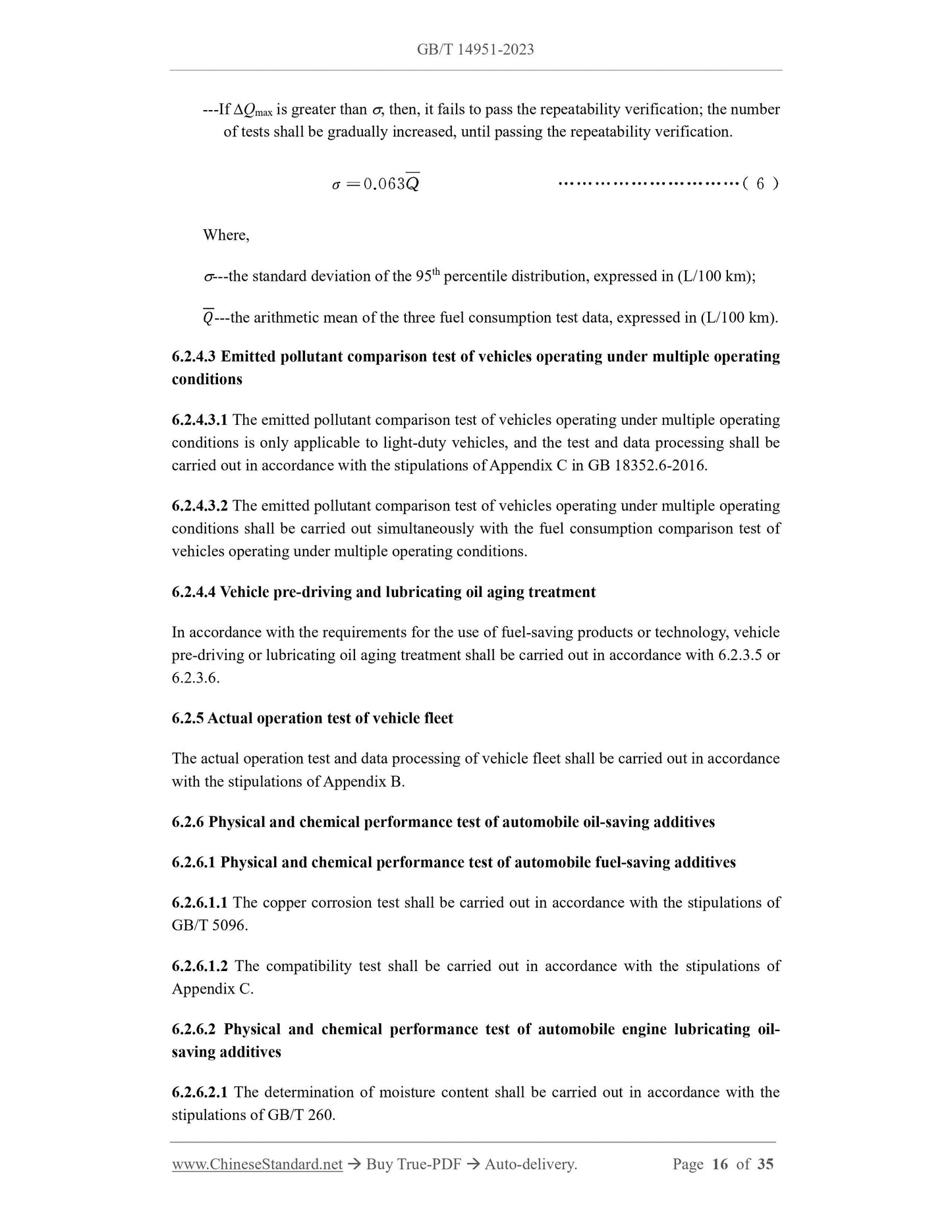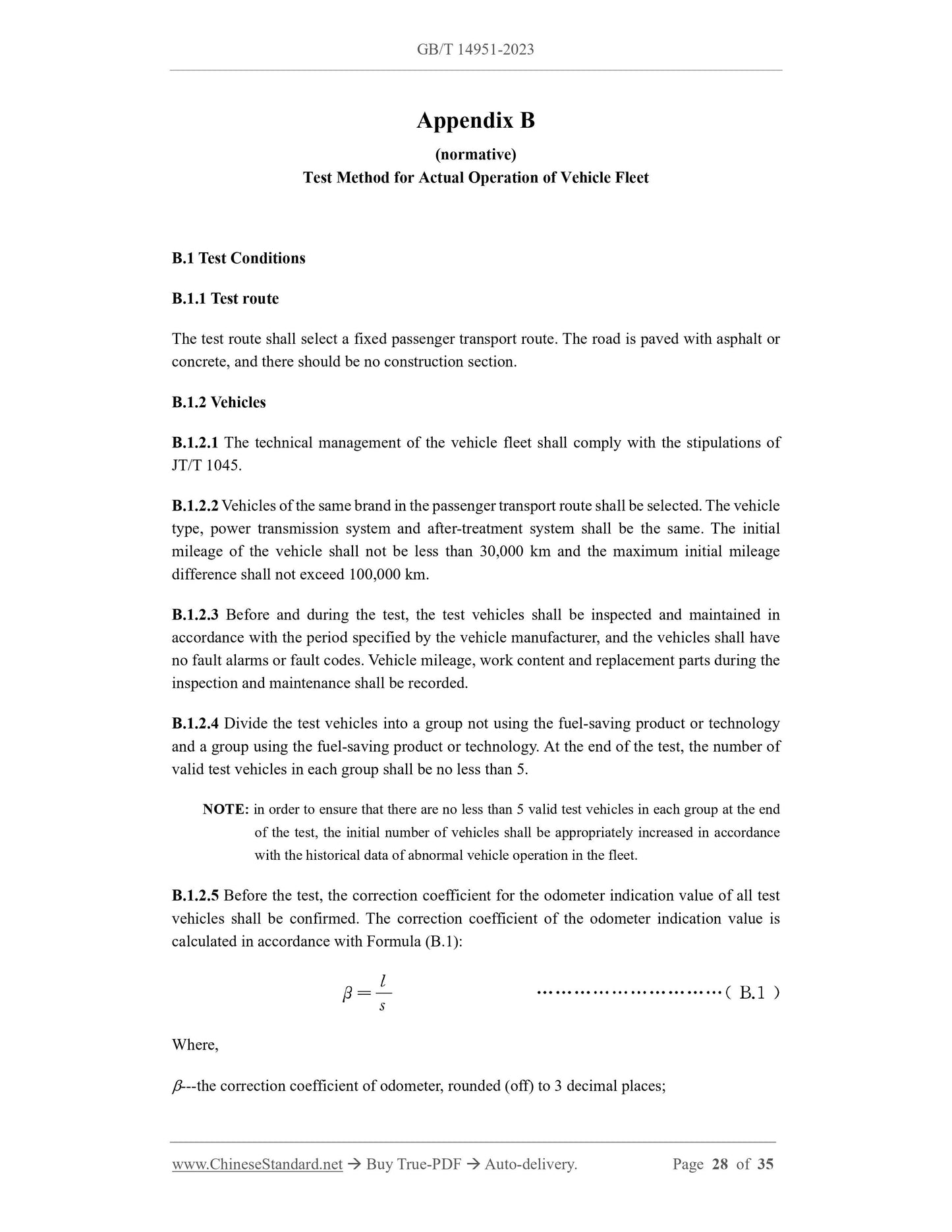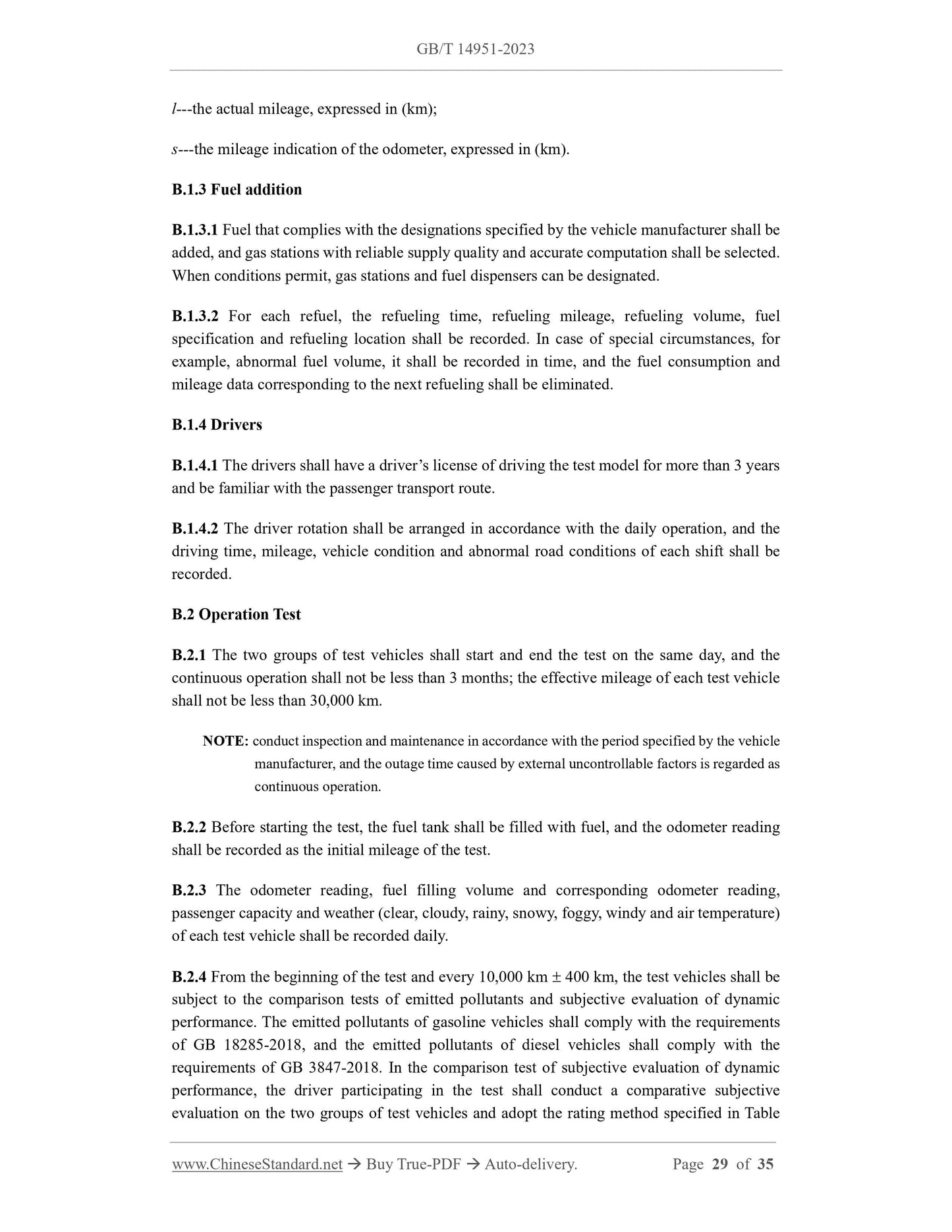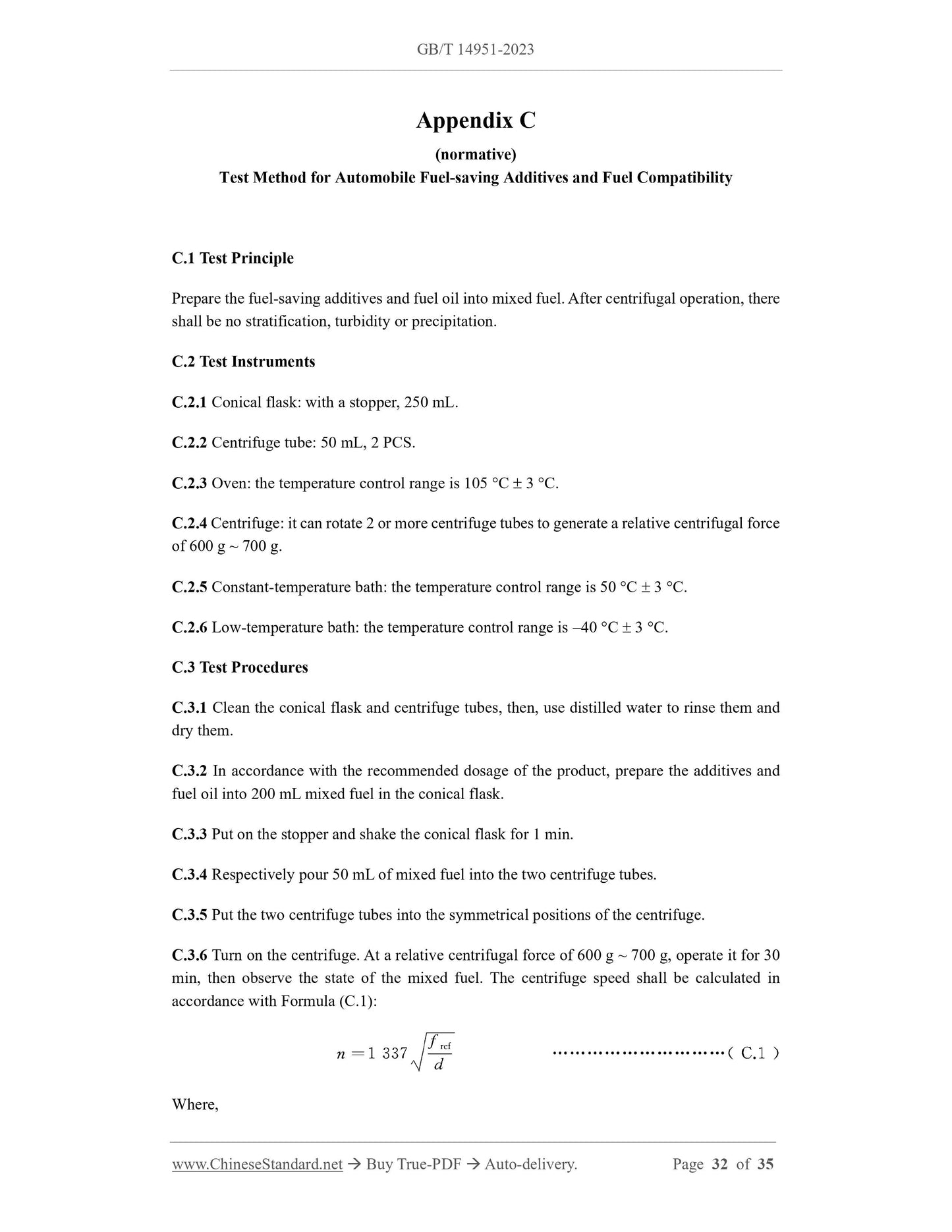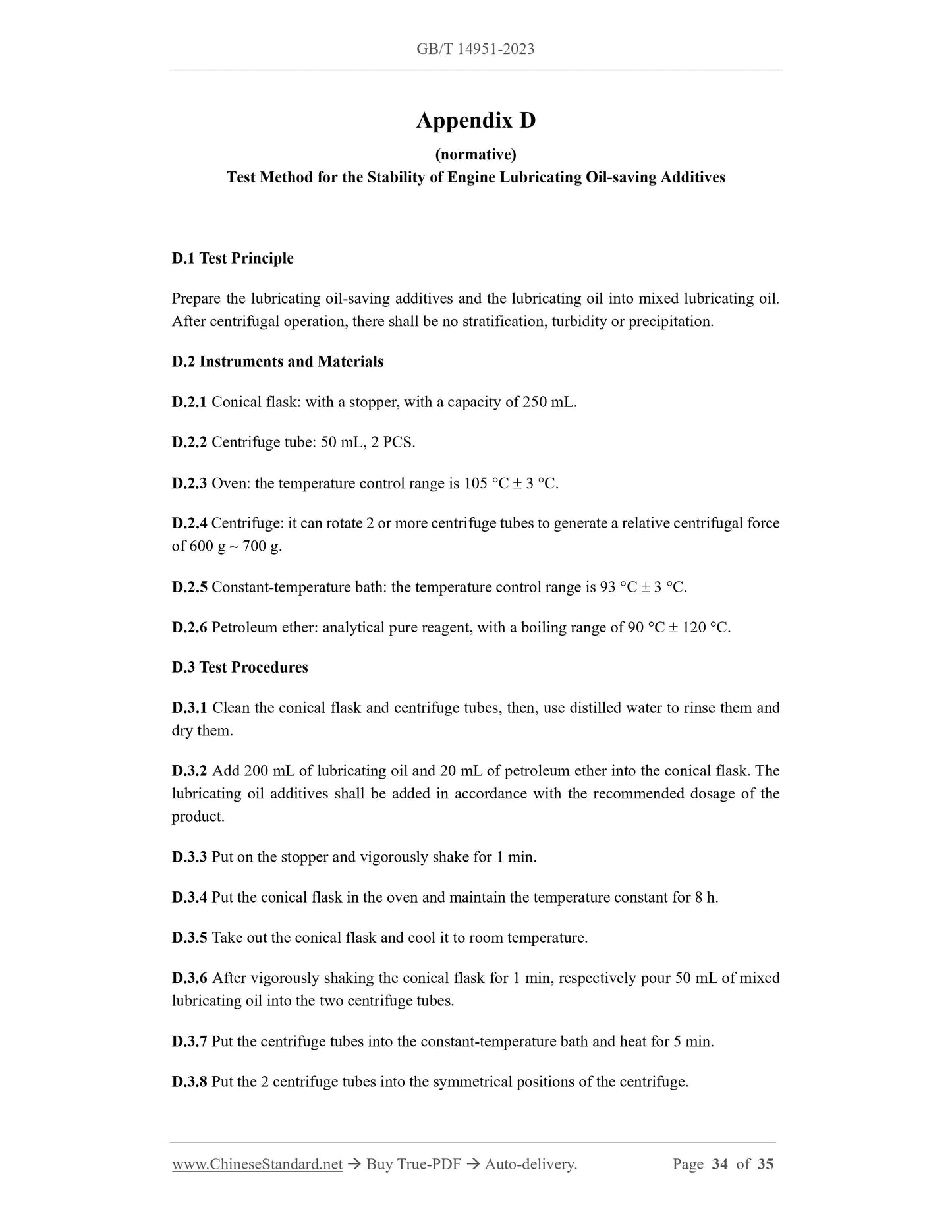1
/
of
12
www.ChineseStandard.us -- Field Test Asia Pte. Ltd.
GB/T 14951-2023 English PDF (GB/T14951-2023)
GB/T 14951-2023 English PDF (GB/T14951-2023)
Regular price
$350.00
Regular price
Sale price
$350.00
Unit price
/
per
Shipping calculated at checkout.
Couldn't load pickup availability
GB/T 14951-2023: Measurement method of fuel saving technology for automobiles
Delivery: 9 seconds. Download (and Email) true-PDF + Invoice.Get Quotation: Click GB/T 14951-2023 (Self-service in 1-minute)
Newer / historical versions: GB/T 14951-2023
Preview True-PDF
Scope
This document describes the evaluation index, test items and test methods of the fuel savingtechnology of vehicles in use, as well as the calculation of the evaluation index.
This document is applicable to the evaluation of the application effect of fuel saving products
and technology of vehicles in use.
Basic Data
| Standard ID | GB/T 14951-2023 (GB/T14951-2023) |
| Description (Translated English) | Measurement method of fuel saving technology for automobiles |
| Sector / Industry | National Standard (Recommended) |
| Classification of Chinese Standard | R06 |
| Classification of International Standard | 43.020 |
| Word Count Estimation | 22,260 |
| Date of Issue | 2023-05-23 |
| Date of Implementation | 2023-05-23 |
| Older Standard (superseded by this standard) | GB/T 14951-2007 |
| Issuing agency(ies) | State Administration for Market Regulation, China National Standardization Administration |
Share
